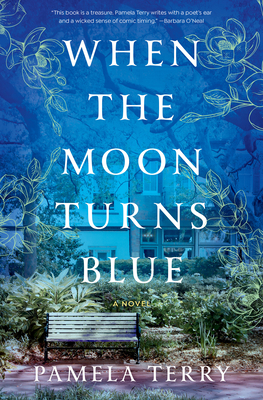
Undressing the Moon
Book Description
Secrets simmer beneath the surface of a small town, where the moon holds more than just light—it conceals hidden tragedies and unspoken truths. When a sudden tragedy demands answers, relationships fracture and loyalties are tested, revealing the fragile threads that bind families together. As old wounds resurface and haunting memories plague the living, the quest for closure spirals into a whirlwind of passion, betrayal, and redemption. Amidst the chaos, can love truly heal the scars of the past? In a world where every shadow tells a story, what will emerge when the veil is finally lifted?
Quick Book Summary
"Undressing the Moon" by T. Greenwood is a haunting and poignant exploration of family secrets, personal tragedy, and the fragile bonds that hold people together. The story unfolds in a quiet small town shadowed by the moon, where buried truths shape the lives of its inhabitants. When a tragedy strikes, long-suppressed wounds resurface, compelling the central characters to confront painful memories and unspoken loyalties. As relationships fracture under the stress of seeking closure, the narrative delves into themes of betrayal, longing, and the desire for redemption. Ultimately, the journey reveals that in the face of loss and heartache, healing is possible—but only when the past is faced head-on and the truth comes to light.
Summary of Key Ideas
Table of Contents
The Cost of Family Secrets
In "Undressing the Moon," the quiet rhythms of small-town life provide a fragile backdrop for the turmoil that exists just beneath the surface. The novel centers on how secrets, whether carefully guarded or inadvertently exposed, shape familial and social ties. Through evocative prose, Greenwood paints a world where the moon itself becomes a symbol of hidden tragedies and the veiled emotions of its characters. The story is catalyzed by a sudden tragedy that forces old secrets into the open, shattering the illusion of normalcy that blankets the town.
The Weight of Grief and Loss
As relationships fracture, the novel explores the profound weight of grief and the unpredictable ways it affects each character. The protagonists are forced to reckon with their own complicity in the silence that once kept the peace, realizing that avoidance only deepens wounds. The process of mourning is both isolating and communal; shared sorrow exposes the rifts within families while occasionally providing an avenue toward empathy and solidarity. Greenwood deftly examines how individuals respond to loss—some with anger, others with retreat, and still others by seeking solace in unexpected places.
The Search for Redemption and Forgiveness
Central to the novel is the theme of redemption and the possibility of forgiveness. Confronting the pain of the past proves excruciating but ultimately necessary for healing. Characters face moments of painful self-reflection as the pursuit of closure leads them to revisit old betrayals and reconsider actions once thought justified. The narrative suggests that forgiveness, both of oneself and others, does not come easily; it demands vulnerability and an acceptance of imperfection. As secrets unravel, the chance for a new beginning emerges, conditioned upon honest acknowledgment of the hurt inflicted.
Interconnectedness in Small Towns
Greenwood also portrays the interconnectedness that defines small communities. In such close quarters, individual actions ripple outward, entangling neighbors, friends, and distant relations. The town’s collective identity is challenged as personal tragedies reveal broader patterns of hidden suffering. In this environment, gossip, loyalty, and judgment coexist, intensifying the characters’ emotional journeys. The presence of the moon, ever-watchful and mysterious, reinforces the idea that every person carries unseen burdens, and each story casts its own shadow.
The Role of Memory in Healing
Finally, "Undressing the Moon" underscores the role of memory in the healing process. As characters are compelled to confront their recollections—some cherished, others haunting—they are reminded that the truth is often subjective and blurred by time. Greenwood illustrates how reconstructing the past becomes integral to moving forward; letting go is never simple or linear. Ultimately, the novel posits that while some scars may never fade, love and acceptance can transform even the deepest wounds into sources of strength for the future.
Download This Summary
Get a free PDF of this summary instantly — no email required.





